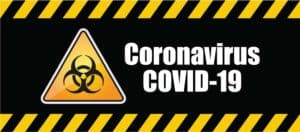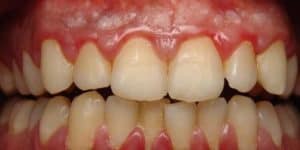
Many people struggle with bad breath, which is also known medically as halitosis. In fact, some estimates find that about 50% of adults suffer from halitosis, and that some 60 million Americans likely have chronic bad breath.
If you find yourself among these numbers, there is some good news: You can take some easy measures to protect yourself against this dastardly foe. First, though, it’s helpful to note why halitosis occurs in the first place.
Causes of Chronic Bad Breath
Dr. Brusky notes, “Bad breath largely comes down to bacteria.” Certain conditions in your mouth can make it favorable for harmful bacteria to thrive. These include:
- Dry mouth. Also known as xerostomia, a dry mouth makes it easy for bacteria to colonize quickly. Your saliva acts as a natural defense to both wash away these invading microbes, as well as balance the pH in your mouth.
- Poor home oral care. Though you’ve probably heard it endlessly, it is essential to brush and floss regularly. “If you’re not flossing, you’re leaving debris between your teeth that can be a wonderful breeding ground for the bacteria that cause bad breath and other oral problems,” says Dr. Brusky. Dentures are no exception; they must be properly cleaned both when being taken out and put back into the mouth.
- Poorly fitting dental restorations. If your crowns, onlays, fillings, or removable appliances aren’t properly fitted to your mouth, there can be gaps that allow bacteria to proliferate.
- Buildup on your tongue. Not only can food and other particles accumulate on and between your teeth, but they can also set up shop on your tongue. Left un-brushed and un-scraped, your tongue can act as a magnet for all kinds of bacteria. This is one of the biggest sources of halitosis.
These aren’t the only causes of chronic bad breath, however. The following can also play a role in the development and persistence of halitosis:
- Tobacco use. Be it cigarettes or chewing tobacco, both of these varieties wreak havoc on oral environments. In addition to its distinct aroma, tobacco also leaves one more vulnerable to gum disease, which in turn can increase the likelihood of bad breath and systemic problems in the body.
- The side effects of some medicines include dry mouth, which can lead to halitosis.
- Oral infections. Your mouth is especially vulnerable after surgeries like tooth removal, and can also be prone to bad breath during conditions like oral yeast infections, tooth decay, and oral sores.
- Reflux Disease. Gastric reflux disease (where stomach acid gets into the mouth) is a huge problem with our unhealthy American diet. It can lead to chronic bad odors.
- Post-Nasal Drip. Chronic sinus drainage to the back of the throat can cause bad breath
- Some people have large or very deep tonsillar crypts. These crevices trap food that starts to rot, causing horrible smells and can even lead to tonsil stones. Flushing the tonsils with a special syringe periodically can eliminate halitosis-causing debris.
So with all the various causes of bad breath, what can be done?
Solutions to Chronic Bad Breath
Fortunately for all who suffer from this affliction, there are some simple steps to take:
- Practice good oral care at home. As discussed above, the best advice remains to floss daily and brush twice a day. Though it sounds deceptively easy, this basic care can prevent a whole host of problems.
- Keep your mouth moist. Chewing sugar-free gum or sucking on sugar-free candy offers your mouth a chance to continue producing saliva between meals. And of course, there’s no substitute for good hydration. Dr. Brusky adds, “Drinking several glasses of water per day has myriad benefits, and can boost your oral health immediately.”
- Avoid alcohol-based mouthwashes. Alcohol acts as a drying agent, and though it cleans the mouth, it also produces less-than-ideal conditions after use. It’s best to use mouthwashes that don’t contain alcohol, allowing germs to be killed and the mouth’s moist environment to be maintained. Chlorine dioxide mouthrinses can be particularly effective.
- Clean your tongue. Don’t overlook the tongue in your daily oral hygiene routine. Using a tongue scraper every time you brush can drastically reduce the bacteria that cause bad breath.
- Flush your tonsils. Brusky can provide you with an easy to use Monoject syringe that will allow you to periodically flush food debris from the tonsillar crypts.
- Keep a log of what you eat. If you’re concerned that some of the foods you eat might be causing halitosis, write down everything you eat for a few weeks. You can show your dentist this list on your next visit to note any patterns and see what can be done.
- See your dentist regularly. It’s recommended to go twice a year for cleanings and check-ups for the best oral health possible. If you suffer from gum disease, ask your dentist about scaling and root planing, and oral cancer screening, as well. You can also see for yourself how your home care is helping keep your mouth in good shape.
To learn more about eliminating bad breath, or to make sure you have optimal oral health, schedule an appointment with Dr. Brusky’s dental office today. He and his experienced team will work with you to meet all of your oral care needs.






